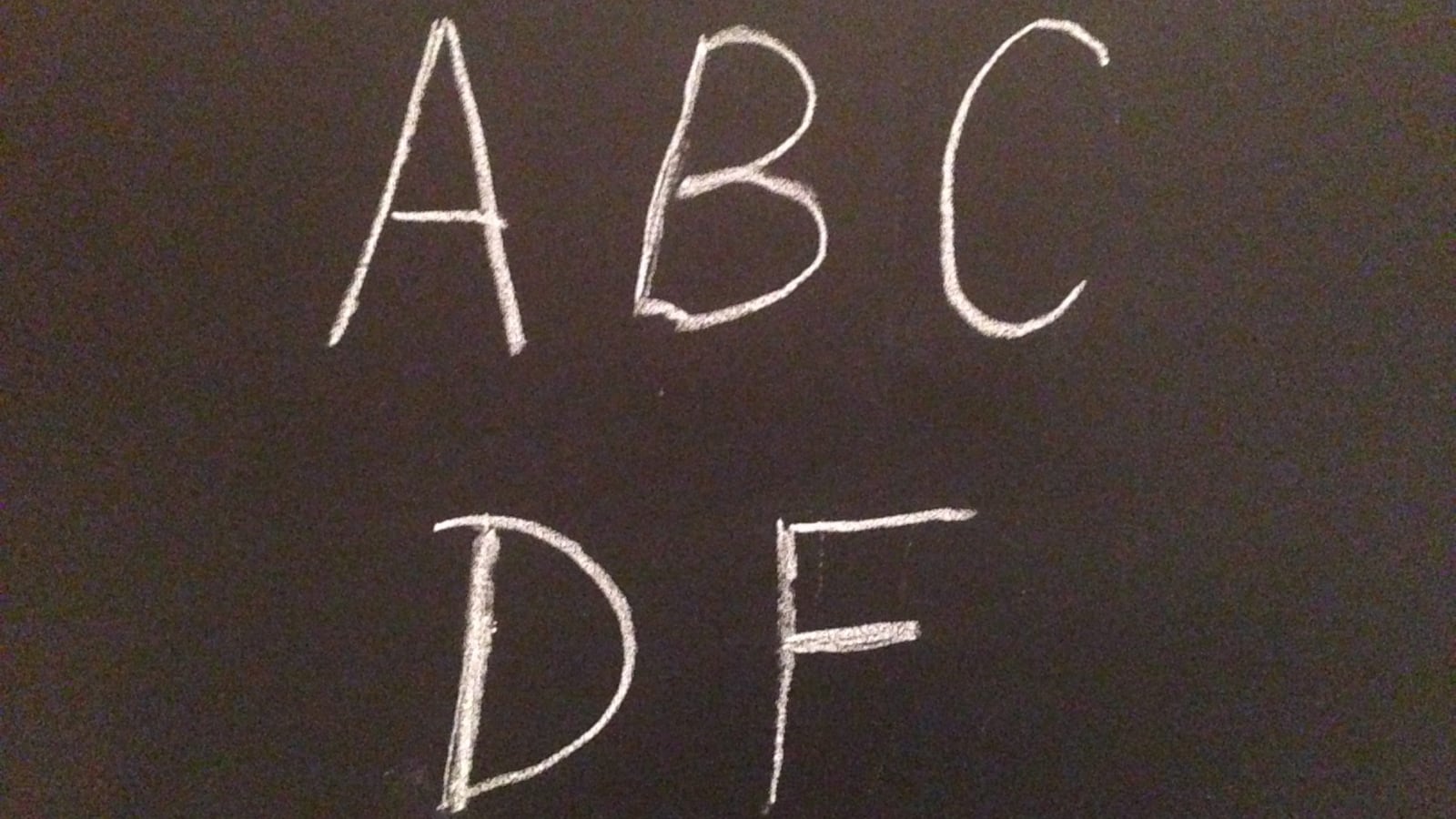A revised version of a controversial bill that would give every school in the state an A-F report card advanced Thursday in the state House.
The bill passed 10-3 along party lines, with two Democratic members choosing not to approve or reject the bill. If the bill is approved in the majority-GOP House, it will go to the Senate. If turned into law, the letter grades could become effective at the beginning of the 2019-2020 school year.
Instead of a single letter grade, which has been rejected by the state Board of Education in the past, the bill would give each school six letter grades based on student scores, academic growth, improvements made by English learners, graduation and chronic absenteeism rates, and the number of students who take state tests.
Critics like Tom McMillin, a Republican member of the state Board of Education, said the bill would emphasize preparation for state tests instead of encouraging students to be curious. The bill’s sponsor, Republican Rep. Tim Kelly from Saginaw County, and other supporters said holding schools accountable trumps any negative effects.
To gain more support from Democrats and others against the bill, it was revised to remove some rules about what would happen to schools identified as being in the lowest performing 5 percent in the state. Instead of the current options, including shutting schools down, the bill would create a 13-member commission to identify ways to turn the struggling schools around.
The two members of the committee who abstained from voting on the bill, Democrats Adam Zemke, representing Ann Arbor, and Stephanie Chang, representing Detroit, did not support the original bill. But the possibility of preventing the closure of low performing schools swayed Zemke not to vote against it.
“I am not going to support establishing any sort of rating system if we do not support school turnaround,” he said. “We want something constructive and positive to help out schools who are struggling rather than closing them.”
While Rep. Kelly’s changes have appeased some, others like McMillin are not convinced.
“Allowing unelected political appointees to decide the direction schools will be forced to focus on to get better (through very arbitrary) grades and not get shut down is outrageous, but not surprising from people who also recently voted to try to eliminate the elected state board of education,” McMillin said in an email.
He called the A-F school letter grades “bogus.”
The grades allow “unelected bureaucrats to decide the focus of instruction in our schools, and will inhibit schools from advancing the qualities students will need for the future,” he said.
Charter leaders and advocates have expressed support for the A-F letter grades because they believe the system would allow parents to see quickly and easily which public schools, traditional or charters, are best-performing.
The A-F ranking system has been a divisive issue, with others viewing it as too simplistic because it doesn’t necessarily take into account factors like poverty that would impact student performance.


